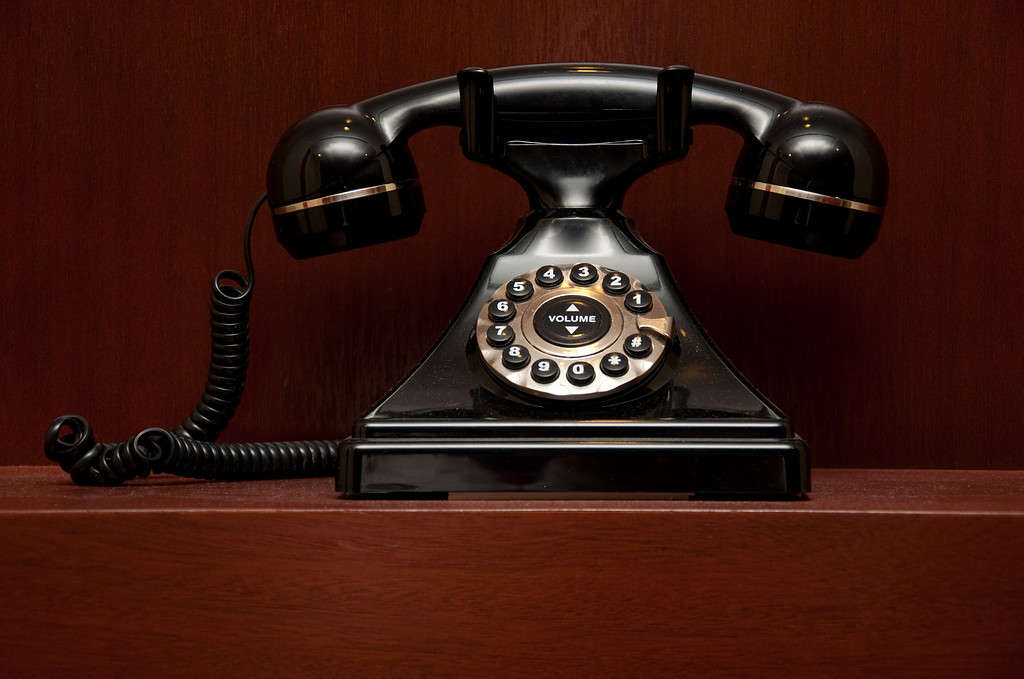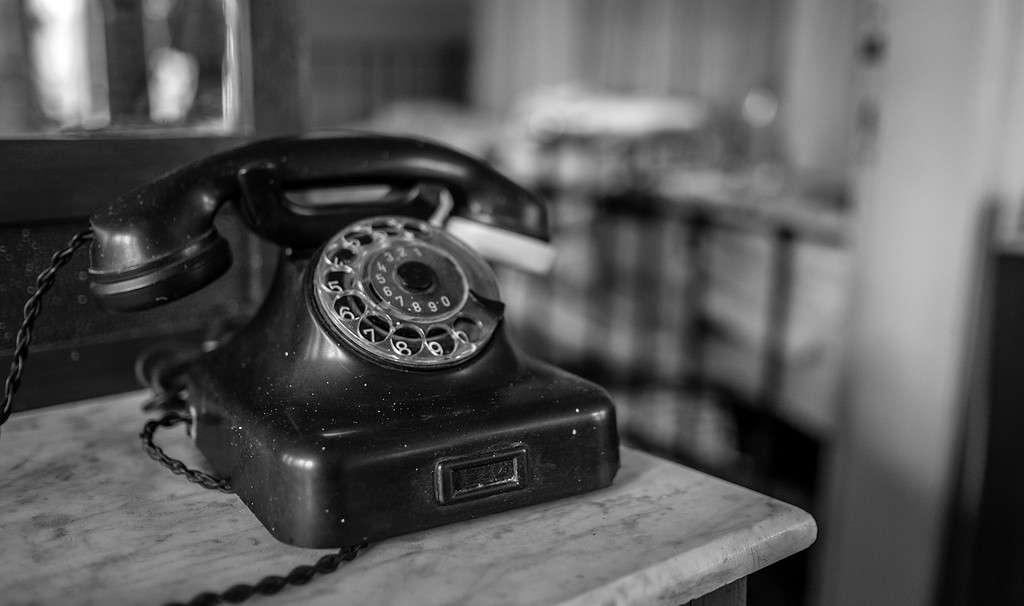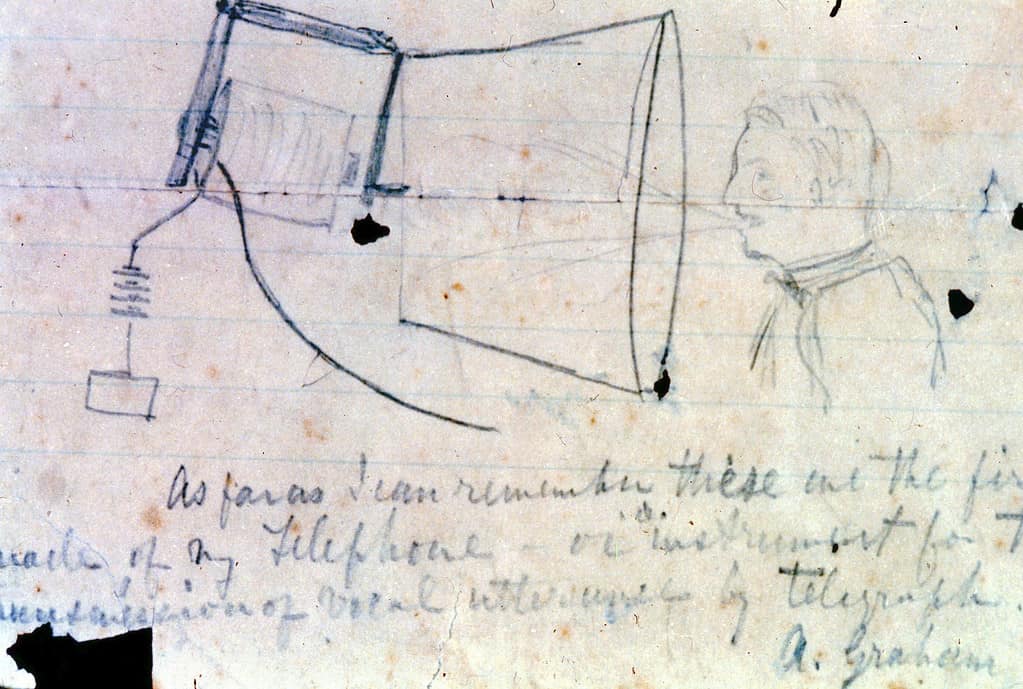Who Really Invented The Telephone: Exploring the Mastermind Behind It All
As with all major inventions and discoveries, there is a fair amount of dispute and disagreement over who discovered it first or who gets credit for the invention. Television, flight, the internet, hairstyles, and more. There is no shortage of argument to be had. The telephone is no different. So, who really invented the telephone? Can any one person be given credit?
That is no easy question to be answered. The evolution of the telephone over time leaves us with many options of a “telephone” that we can point to. Depending on who you ask, you will get different answers on where to draw the line. But we have to start somewhere. This is our guide to deciding who really invented the telephone.
Why is This an Important Question?

©janza/iStock via Getty Images
While it might seem like settled history today, the question of who invented the telephone was once a complicated and important conundrum. During the 1800s and 1900s, there were over 600 court cases in the United States alone concerning the invention of the telephone, and who should get credit for it. There was a lot of money on the line.
It was so important, in fact, that the United States Congress made a declaration in 2002 recognizing the work of Antonio Meucci in the creation of the telephone. Canada took offense to the declaration. They responded with their own declaration that Alexander Bell (a Canadian citizen) was the sole inventor of the telephone. The disagreements and arguments continue to this day.
What Qualifies as The First Telephone?

©BARIZM/iStock via Getty Images
The first invention that can be called a telephone was created in 1667 by Robert Hooke. It was the first acoustic string telephone, something we would recognize today as a tin can phone. You might have even made one in school when you were younger. But while this invention was (and still is) able to transmit sound across a short distance, it doesn’t quite qualify as a telephone that can simultaneously transmit sound in both directions across large distances.
There were many subsequent inventions that were able to transmit sound across distances which were not called telephones at the time. The name “telephone” was created by Philipp Reis, one of the early pioneers of the invention during the 1800s.
Most of the early iterations of the telephone were analog, or not electric. Therefore, most discussions surrounding the true inventor of the telephone will focus on the invention of the electric telephone, which was able to transmit sound further than just a few meters.
Who Really Invented The Telephone?

©© Getty Images/PHOTOS.com>> via Getty Images
Ultimately, it is unfair to assign credit for the invention of the telephone to just one person. Every inventor through the evolution of the telephone built on, stole from, and worked with other inventors. Many claimed to have invented the telephone, and many inventions qualify as the “first”. Notoriously shrewd businessman and intellectual thief Thomas Edison even had his hand in guiding the eventual birth of the modern telephone.
Additionally, there is the question of simultaneous invention. If two people invent something at the same time without knowledge of the other, do they both deserve credit?
In the end, there are really three main candidates for the title of inventor of the telephone. They are: Antonio Meucci, Johann Philipp Reis, and Alexander Bell. Here is their background and grounds for the title.
Antonio Meucci
According to the Italian Government, Antonio Meucci was the original inventor of the telephone. Also, according to the United States Congress and other experts, the only thing preventing Meucci from receiving his just credit for inventing the telephone was the cost of applying for a patent. These are strong credentials!
Antonio Meucci was an Italian-born inventor who lived in New York and Havana. He invented several devices he used for transmitting voice communications. There is evidence of his inventions working successfully as far back as 1856 and 1857. He was even able to speak electronically with his wife while he was at work. He finally applied for a patent caveat in 1871. (A caveat is not a patent, but a formal notice that an important invention might be announced soon). This was five years before Bell filed for his telephone patent.
However, Antonio Meucci struggled financially, and he could not afford the $250 fee to file a full patent application. Instead, he filed for a caveat for only $20. This inability to apply for a patent and defend his invention in subsequent lawsuits ultimately led to Alexander Bell being able to claim the title of the inventor of the telephone.
The Italian Ministry of Cultural Heritage and Activities still titles Antonio Meucci as the “inventor of the telephone”. However, because his inventions did not lead to later innovations, and were not the basis for future inventions, most modern-day historians do not credit Meucci with inventing the first telephone.
Johann Philipp Reis
Johann Philipp Reis was a German-born scientist and inventor. He first wrote about his experiments in 1859. Most of his publications and inventions were ignored by the German public. Most other professors were not as interested in the endeavor as their counterparts were in North America. Many historians believe that if Reis had had more support, or lived in North America, the story of the telephone would be much different. He invented the first prototype telephone in 1860. His inventions were repeatedly rejected by Professor Poggendorff, who was in charge of accepting pieces for the reputable Annalen der Physik, the oldest and most famous scientific journal in the world.
In 1947, the Science Museum in London and the Standard Telephones and Cables company (STC) recreated Johann Reis’ invention and confirmed that it did, indeed, work as a telephone. STC, however, covered up the evidence and ordered the experiment to be kept secret. They were in negotiations with AT&T at the time (which was the descendant of the Bell Telephone Company). They didn’t want the evidence to impact their deal.
In 1878, European scientists erected a monument in Gelnhausen in honor of Johann Reis. They declared him the inventor of the telephone. This was two years after Bell was granted his first patent.
Alexander Graham Bell
Any cursory internet search will tell you that Alexander Bell was the real inventor of the telephone. However, this distention is largely based on the fact that Alexander Bell was simply the first to apply for a patent for the invention. There were other inventors at the time who were also making important and innovative advancements in the telephone. Yet, they did not win the race to apply for a patent.
Alexander Bell was a Scottish-born inventor who lived in Canada. He worked in many areas besides telecommunications, including heredity, aeronautics, hydrofoils, and more. He considered his work on the telephone to be a distraction from his actual work. Many people today still accuse Alexander Bell of stealing his idea of the telephone from fellow inventor Elisha Gray.
After his successful application for a patent in 1876, he continued to develop and improve his invention. His work is the foundation on which all modern telephones and communication systems were and are based on. If there is to be a person to whom we can point for creating the telephone you use today, it is Alexander Bell.









